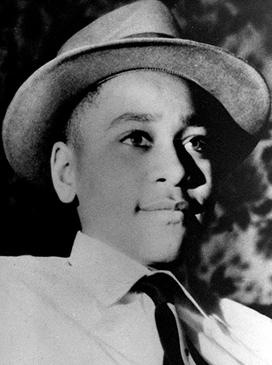Traveling with U.S. troops gives insights into the recent massacre

Photo by Neil Shea
By Neil Shea
The soldiers around me were barely visible, but I could smell them. They had not washed for days, and a sharp musk of sweat and sleeplessness, tobacco and chemically mummified food, wove through the fields and orchards. It was after midnight, moonless, the stars brilliant but unhelpful. The soldiers wore night-vision goggles, but I did not, so I stumbled after their scent along the remote edge of a fading war, envisioning things I could not see.
Up ahead, in the stream of black shapes, were the American soldiers I had come to fear. They were men who enjoyed demolishing Afghan houses, men who shot dogs in the face. The pair who had embraced like lovers, one tenderly drawing the blade of his knife along the pale, smooth skin of his friend's throat. There was a guy who'd let the others tie his legs open and mock-rape him, and there were several men who had boasted of plans to murder their ex-wives and former girlfriends.
We paused in the darkness. A line of Afghan soldiers shuffled past, also nearly blind without night-vision equipment. They moved into position for the coming raid, clumsy as boxcars, trailing their own earthy stink. I thought back to what an American Army sergeant had told me hours earlier.
"This is where I come to do ####-up things."
His face had been clear and smooth, his smile almost shy. It was a statement of happy expectation, as though Afghanistan were a playground. He was the de facto leader of a platoon I will call Destroyer, and although he is a real person, not a composite, I have heard his words in many variations, from many American combat troops. But he and some of his men were the first I had met who seemed very near to committing the dumb and vicious acts that we call war crimes.
We marched on, toward houses the soldiers planned to raid and doors that would soon be blasted open, toward men who would be ripped awake, blindfolded, and hauled away. The sergeant's words rattled in my head. I hoped the men would not do anything terrible.
Since 2006 I have written off and on about the wars in Afghanistan and Iraq. Nearly all of my work in those countries has been done embedded with NATO, mostly American military units. Many times I have watched soldiers or Marines, driven by boredom or fear, behave selfishly and meanly, even illegally, in minor ways. In a few searing moments I have wondered what would come next, what the men would do to prisoners or civilians or suspected insurgents. And I have wondered how to describe these moments without reporting melodramatic minutiae or betraying the men who allowed me in.
Most soldierly stupidity does not amount to crime; most soldiers never commit atrocities. U.S. soldiers shooting at goats, for example, or pilots getting drunk on base, or guards threatening the lives of prisoners, all things I have seen, defy military rules and erode efforts to win hearts and minds. But how bad is it, really? Do we care? What is my responsibility when I see it? I have never found good ways to write about the subhuman wash of aggression and the small episodes of violence military men and women cycle through daily, or the choices they make in the midst of this.
We tend to ignore such problems unless they are connected to a crime. An editor at a major magazine once dismissed such unsteady subjects by saying, "Yes, but bad things happen everywhere." Perhaps she was telling me to lighten up. She was also summarizing a national attitude toward the wars. I write about it now because what I witnessed with Destroyer, and other units, routinely and unquietly returns to me.
I joined the platoon last summer at the end of a weeklong mission designed to clear insurgents from a series of towns and valleys in central Afghanistan. In 10 years of war, I was told, NATO troops had never visited the region. Intelligence reports called it a Taliban stronghold, and commanders expected heavy fighting. Going in, many soldiers told me they believed they would die.
Destroyer and several other units had dropped into the valleys by helicopter at night. During the day, they pushed through a sun-killed landscape of rock and withered grasses, where it was Destroyer's job to search for weapons caches and battle insurgents alongside a wobbly unit of Afghan National Army (ANA) troops.
Each night, the men slept in abandoned qalats (fortified residential compounds), or they moved into occupied ones, handed the residents some cash, and kicked them out. I met the soldiers at a qalat they had temporarily confiscated, a large, newly painted house. Tall walls enclosed a courtyard containing a small orchard, a garden, and a well. Several rooms ran along one wall, and the soldiers had moved into them, sleeping head to foot on floors littered with cigarette packs, candy wrappers, and food scraps. The place was heavy with a scent I would later follow through the night.
I first met Staff Sergeant James Givens, as I will call him, outside one of these rooms. I had been asking about a dog that lay on the far side of the courtyard beside a heap of garbage. Like many soldiers, I sought out dogs whenever possible in Afghanistan, hoping to pet them or play with them, searching for a reminder of home. No one was paying this dog any attention. A soldier told me with a laugh that it was sleeping, so I walked over and found the animal leashed and dead, killed by a gunshot.
"What dead dog?" Givens said, grinning. "He's just takin' a nap."
A captain standing nearby asked rhetorically and perhaps for my benefit if it had really been necessary to shoot a pet. Givens laughed.
"Sir, we've left plenty of animals alive in this area."
One of those bits of violence. I shifted gears and began doing my job, hanging out with Givens and his men, hearing their stories while we waited for dark and that night's raid. The dog continued napping for another day until Afghan soldiers, preparing their dinner a few feet away, wearied of the odor and moved the carcass.
The men of Destroyer said that so far the worst-case scenarios had not unfolded. They had searched houses and outbuildings and found little evidence of insurgents. Fighting in the valleys and towns was relatively light; mortars now and then, some rifle fire. Across the entire operation only one soldier, an Afghan, had been killed. The Taliban had not mined the region with IEDs or dug into the hillsides in anticipation of a grand battle. Most Taliban, if ever they had been in the area, slipped away while the Americans and the ANA flooded in.
We sat on the patio in the late, hot afternoon, airing our foul, boot-pruned feet. The soldiers of Destroyer talked about how their house searches had become demolition parties. They shattered windows and china, broke furniture, hurled civilians to the ground. Earlier that day, they had blown up a building. They tornadoed through Afghan houses and left such destruction that their ANA allies at first tried to stop them, then grew angry, sullen.
"They were so pissed they wouldn't hang out with us anymore," Givens remembered. "They kept saying 'No good, mistah. No, mistah.' And I was like, 'Yes, #### good. Plate? Smash. Is this a drum? Smash.' " He laughed. " 'Oh, mistah, no.' "
I imagined the Afghan soldiers standing by, helpless, while Destroyer destroyed. I thought of attacks over the past several years in which Afghan policemen or soldiers had suddenly turned on their NATO allies and opened fire. Such betrayals have been increasing. Sometimes the Taliban claim responsibility for them, but often it seems the assailants have been taking revenge on foreign soldiers for some perceived insult to their honor. It was not hard to envision the seeds of such an attack sown in the ruts of Destroyer's visit.
Slowly, the soldiers began adding more stories, and tales of the past week blended with memories of killing and destruction during other missions and battles, in Afghanistan and Iraq, during many tours of duty. The men's voices fell over each other in a clatter of brutality and homoerotic jokes.
So I grabbed the chain and dragged it out and shot it again with the shotgun and, uhhhh, brains all over me …
Shut up, #####. You never did that …
Man, even if you actually got to see some Afghan chick and she was hot, I still wouldn't #### her cause she'd still be from here, which means she'd still be covered with ####.
My last deployment, my platoon sergeant, he'd say, "Make sure nothing lives. Cows: Taliban food. Sheep: Taliban food. Donkeys: Taliban transportation. Kill everything."
You know what? #### these people.
Spend time around soldiers and you realize a lot of this is part of the game, part of being a young man in war. Still, I sensed more anger and hatred than I had encountered before. Givens spun at its center like a black hole. He was in his mid-20s, charismatic and quick, a combat veteran. He threw down declarations like a hip-hop star—respect yourself and no one else; #### bitches, get money—and the younger infantrymen revered him. Even officers appeared to defer to his humor, efficiency, and rage.
Platoons are often structured like high school cliques, and Givens stood at the apex of his, setting the tone and example. A list of characteristics scrolled through my mind as I listened to the men, traits I probably learned from episodes of Law & Order, or Lord of the Flies. Pop-culture sociopathy. Sexualized aggression. The displays of wolves.
"This is where I come to do #### -up things," Givens said. "So I don't do them at home."
Sometime after midnight, Destroyer and its ANA partners left the qalat to raid houses in another village. They had cleared it earlier in the week but believed some Taliban might have returned. The air was cool and clear, the landscape washed in blue-black silence. The soldiers gathered in a cloud of whispers and scraping boots at the edge of the village, then pushed in.
A loud and bright discord of explosions, shouts as soldiers took a few prisoners. But the raid was otherwise uneventful, almost standard. The battlefield equivalent of a traffic stop. The men treated the prisoners with ordinary roughness, blindfolding, tying their hands with rope. Then we filed back through the darkness to the confiscated qalat. Soon, anyone who could folded into exhausted sleep. It was nearly 4 a.m.
On a concrete patio, I pulled my sleeping bag over my head, leaving my boots on and my legs uncovered, like a drunk. Near me, a soldier and an American civilian began interrogating one of the prisoners. I slid into a weird slumber, the day's events, flashes of heat and light, merging in dreams to the rhythm of interrogation.
What did he do in Iran during those two years?
He's not dead, he's sleepy.
If I knew where the Taliban were I would personally show you.
My ex, that bitch. I got a plan to kill her.
Stop. He's playing this game again. Where the #### was he prior to that time in Iran?
Respect yourself and no one else.
War is small, opaque moments. In spans of wakefulness, I wondered how I could ever write about them, and where my power of perception failed. A cock crowed, the interrogation ended. Soon the desert sun rose above the qalat walls, and my sleeping bag warmed into a putrid cocoon. When I finally emerged, the prisoner lay near me on his back, hands still cuffed, blindfold held in place with a strip of silver duct tape. For a moment I thought he was napping, like the dog beside the trash pile. Then, slowly, he reached up and scratched his nose.
It was the last day of the long mission. After midnight helicopters would retrieve Destroyer and the other units working in the area. The soldiers waited in their rooms, killing time. Some men stripped off their stinking combat shirts and scrubbed each other's backs with baby wipes. Others popped hard-to-reach pimples for their friends. Hygienic intimacy.
"Feels like it's been a month," a soldier said.
"I can't wait to wash my hair," said another, smoothing his dark mop. "Man, we #### up some houses, ####."
Givens laughed and leaned against his gear. He was slim, boyish, unscalded by his own anger. He hated Afghans.
"Yeah, we definitely made some Taliban out here," he said. "It was like a week-long Taliban recruiting drive. And we had fun doing it. I love recruiting for the Taliban. It's called job security."
They passed around packs of Pine cigarettes they had "liberated" during the raid and taunted each other with gay jokes. On the walls the Afghan homeowners had hung posters and odd pictures torn from magazines. An image of a yellow sports car, a photograph of Mecca, an idyllic scene of a cabin in Austria or Germany. Dreams beyond war. Beneath them, the men tipped cigarettes onto the floor and lit detonation cord on the rug, burning black coils into the fabric. A few men retold plans to kill former wives and girlfriends. Givens and one of his close friends talked of blowing up the qalat as they left, a parting thank-you to the residents of the valley.
The mood in the rooms slowly darkened. It reminded me of parties years ago, in high school, after the drinking had gone on a long while. The shift in tone imperceptible at first. A gathering menace. Certain kids felt it, knew they would probably become victims. Some left, others drank more, while around them social rules faded and certain boys began testing their power.
The day dragged on, all of us waiting to leave, obsessed with our filth, thinking of showers, meals. Air Force fighters roared overhead and dropped 500-pound bombs near the qalat, the explosions thudding through our chests. In the courtyard, one of the prisoners sat cross-legged in the shade, his blindfold removed but his hands still cuffed. Someone had placed food and a bottle of water in front of him. Eventually Givens and another soldier sat down on the concrete and glared at him. He glared back.
"I think he remembers we were the ones who #### him up last night," the soldier said to Givens. "I think he's starin' at you."
" #### him," Givens said. "The only reason he's still alive is because the United States of America holds 25 to life over my head."
As I write, furor is waning in the United States over a YouTube video showing four Marines urinating on Taliban corpses. I don't consider it too surprising, though some writers suggest it is a war crime. It was probably born in a hot moment, without much reflection. Beginner's foolishness. The men of Destroyer did nothing like that in front of me. They shoved prisoners around, looted cigarettes, wrecked property—things we routinely dismiss in war. But I had seen and sensed enough, and they spoke of past deeds and future desires that leapt beyond the normal bluster of young soldiers.
In speech we give ideas life. I felt I was watching some of the men unravel toward serious crimes, if, in fact, they had not already committed them elsewhere in Afghanistan or Iraq. Evil or atrocity often explodes from a furnace built by the steady accretion of small, unchallenged wrongs. Some men in Destroyer platoon had been drifting that way for a long time.
Of course, we require our fighters to be ready hurricanes, on-call combat machines. We want them held easily in check, and we expect light-switch control over their aggression. Yet the Afghan war no longer relies so much on combat. The mission is nuanced, and future success, even sane withdrawal, demands Afghan cooperation. Soldiers like Givens, so barely restrained, their switches unreliable after years of war, undermine this. But we have no good method for dealing with men who grow too dangerous. We vaguely hope their anger does not spill over, or come home. It is not simple. My own reaction to the men of Destroyer is difficult. I liked them. I still want to believe they were merely full of bravado.
In the qalat courtyard, a young specialist walked along the patio carrying a plastic toy cap gun, something he'd found in one of the rooms. Givens stood and went to him and smacked the gun out of his hand. Without a word he stomped it to pieces on the concrete.
I sat nearby with another sergeant from the platoon. I had noticed this man distance himself from Givens's clique. Givens occasionally tried to drag him into things, but the sergeant steadfastly refused. We listened to the plastic crunch beneath Givens's heel. It was funny, in a way.
"He is a hater," I said to the sergeant, trying to joke. His face tightened.
"He's bad. He's real bad. He sees someone having fun with something, he just wants to kill it. I don't want to have nothing to do with that."
Givens and the specialist stood in silence, looking down at the spray of plastic shards. Then Givens picked up a stick. He stepped down into the garden. The specialist followed. Together they began swatting the heads off flowers.
The sergeant looked away.
"I don't want to get none of that #### on me," he said.












.jpg)


